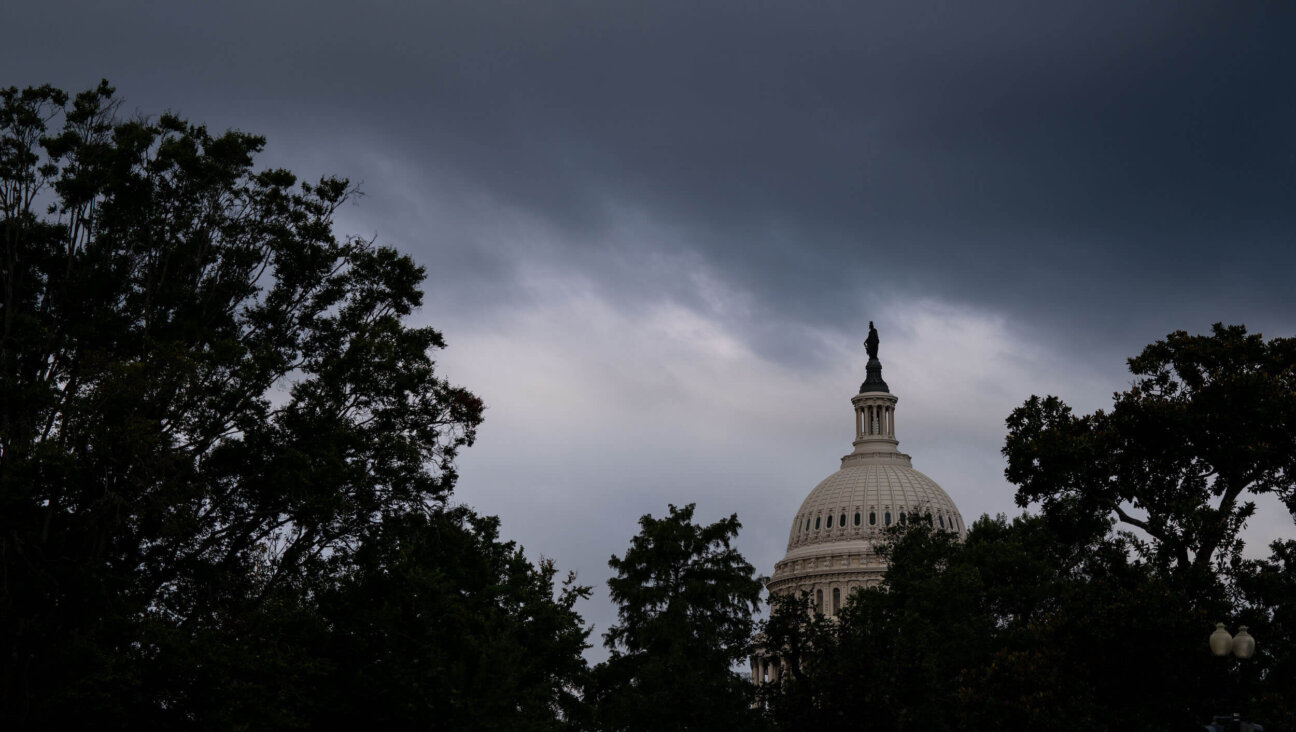Swarthmore Hillel Puts ‘Open’ Status to Good Use

Swarthmore Hillel students
It was 5:25pm when I walked into the room full of murmuring college students. Swarthmore Hillel’s first event addressing the conflict in Israel and Palestine was about to begin. I took my seat among the 60 other students, who were all chatting amiably and nervously, waiting for the event to start. I was terrified. This was the first test of more than a year’s worth of planning, trying to answer the question: “What does being ‘open’ mean for us?”
As a college freshman, I had no idea how to engage with the conflict in Israel-Palestine. The issue felt too messy and too personal to even touch. But when Swarthmore Hillel declared itself “open” in December 2013, I thought that getting involved might be a good way to learn about this notoriously difficult topic.
I ended up on Swarthmore Hillel’s student committee tasked with figuring out how we were going to be an Open Hillel. The world outside of Swarthmore was filled with newspapers, alumni, and organizations who already thought they knew exactly what being “open” meant. For us, however, it was a complicated practical question. We were faced with how to bring together a real, diverse Jewish student community.
We knew from experience how hard it was for most Jewish students to talk about the conflict in Israel-Palestine. I had heard horror stories of the “old days” when any mention of Israel regularly turned Swarthmore Hillel board meetings into shouting matches. We wanted to do better. Much better.
Two weeks ago, after a year of planning, we began with a panel of Jewish students sharing their personal stories about their relationships with Israel. We chose students of diverse perspectives, who didn’t fit neatly into conventional political boxes. I worked closely with two of the students to help them prepare their narratives.
The day before the event, the panelists and event organizers met one last time. In that tiny room, between those nine people with such different perspectives, there was a feeling of quiet hope and camaraderie. People said “I’m really nervous,” but also “I’m excited. I’m ready to try something new.”
The next day I felt the same way waiting for the event to begin. Soon the panelists began their stories. I learned how some fell in love with Israel, others were moved to protest its actions, and still others tried to reconcile these dissonant perspectives. They talked about the tears of their grandparents and their own frustration and confusion. I was moved by how brave these storytellers were, sharing such difficult slices of their lives with us that night.
I saw students coming together and listening. I experienced it myself. The narrative structure allowed me to connect and identify with people who had very different stories from my own. Even when I disagreed with them, I could understand where they were coming from. It was a challenging experience, but I felt supported by the other students. And while I saw many familiar faces from Shabbat dinner, I also saw many Jews who never came to Hillel, and people from many other backgrounds as well.
Ultimately, this is why I’m glad that Swarthmore Hillel is open. It is good for our community. It is engaging people and rebuilding trust. These issues are so monumentally messy that it is far easier for Jewish students to push them away. But we’re in college, and for me, thinking about difficult things and embracing the nuance and the loose ends is what college is about. Swarthmore Hillel is letting me do that in a community that, regardless of my politics, accepts me for who I am.
A message from our CEO & publisher Rachel Fishman Feddersen

I hope you appreciated this article. Before you go, I’d like to ask you to please support the Forward’s award-winning, nonprofit journalism during this critical time.
We’ve set a goal to raise $260,000 by December 31. That’s an ambitious goal, but one that will give us the resources we need to invest in the high quality news, opinion, analysis and cultural coverage that isn’t available anywhere else.
If you feel inspired to make an impact, now is the time to give something back. Join us as a member at your most generous level.
— Rachel Fishman Feddersen, Publisher and CEO






















